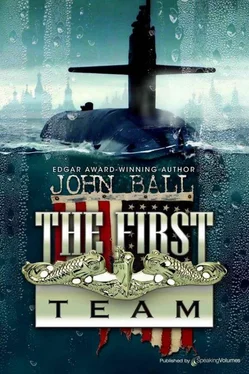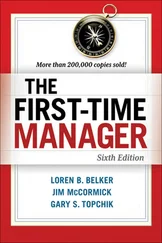Джон Болл - The First Team
Здесь есть возможность читать онлайн «Джон Болл - The First Team» весь текст электронной книги совершенно бесплатно (целиком полную версию без сокращений). В некоторых случаях можно слушать аудио, скачать через торрент в формате fb2 и присутствует краткое содержание. Год выпуска: 2013, Жанр: Триллер, на английском языке. Описание произведения, (предисловие) а так же отзывы посетителей доступны на портале библиотеки ЛибКат.
- Название:The First Team
- Автор:
- Жанр:
- Год:2013
- ISBN:нет данных
- Рейтинг книги:5 / 5. Голосов: 1
-
Избранное:Добавить в избранное
- Отзывы:
-
Ваша оценка:
- 100
- 1
- 2
- 3
- 4
- 5
The First Team: краткое содержание, описание и аннотация
Предлагаем к чтению аннотацию, описание, краткое содержание или предисловие (зависит от того, что написал сам автор книги «The First Team»). Если вы не нашли необходимую информацию о книге — напишите в комментариях, мы постараемся отыскать её.
Student protesters are being slaughtered in the Midwest.
The Jewish pogroms have begun.
You are now living in Soviet — occupied America!
One nuclear submarine and a handful of determined patriots against the combined might of Russia and Soviet-occupied America… The Most Explosive and Gripping “What If” Novel of Our Time!
First published January 1971
The First Team — читать онлайн бесплатно полную книгу (весь текст) целиком
Ниже представлен текст книги, разбитый по страницам. Система сохранения места последней прочитанной страницы, позволяет с удобством читать онлайн бесплатно книгу «The First Team», без необходимости каждый раз заново искать на чём Вы остановились. Поставьте закладку, и сможете в любой момент перейти на страницу, на которой закончили чтение.
Интервал:
Закладка:
As for the very best, you can’t have him. Ordinarily he would be assigned without question, but he isn’t available. The best man we had here was Colonel Newman, who is a noted specialist in abdominal surgery. He can’t help you now because you forced him out of the service. Colonel Newman,” he added coldly, “is Jewish.”
Senator Solomon Fitzhugh sat alone on the glassed-in porch of the mountain cabin which had been his temporary home for the past several days. Away from the familiar environment of Washington, and separated from the things he knew and understood, he had spent much of his time in thinking. It was precisely for that purpose that Ed Higbee had arranged the sojourn for him. He had also made a very careful choice of the caretaker-cook who kept things in order and provided excellent meals. The two men had talked, of course, but Fitzhugh specifically avoided inviting any opinions. If he was going to do the thing that had been asked of him, then it would be in his own good time and out of his own personal conviction. He had no intention of allowing himself to be shoved into anything by anybody.
He was expecting “Mrs. Smith” and had prepared himself, mentally and physically, to receive her.
Despite the fact that she had been surprisingly candid with him, she still represented a considerable mystery to him. That she was a woman of rare intelligence and breeding he did not question; she was quality clear through, and no actress, no matter how gifted, could ever have portrayed such a role without possessing the same qualifications herself. He remembered Greer Garson again and thought that the comparison was apt. But for one thing, he did not even know her correct name — she had admitted at their first meeting that the “Mrs. Smith” was an alias. He was still far from satisfied that she did not intend to use him, well beyond the point which he had already agreed to.
But there was one fact that he could not deny: assuming that she had spoken the truth, her daughter had been gunned down in the same massacre that had robbed him of his son. A daughter who very probably had recruited Gary to her cause and had thus directly caused his terrible and cruel death.
He did not hear the car arriving; he was quite unaware that anyone else was within miles when the caretaker came to the door of the porch and said, “Mrs. Smith is here.”
Solomon Fitzhugh rose to his feet in time to greet his visitor.
“I do hope that you have been comfortable, senator,” she said. “Yes, quite,” he responded. “Would it be proper to inquire to whom this facility belongs?”
She caught the word “facility” and correctly diagnosed its meaning. “It is privately owned, senator; it belongs to a retired industrialist who uses it as a retreat when he wants to get away from everything and enjoy peace and quiet.”
“Am I to assume, then, that he is aware of the fact that I am using his property?”
The smile she gave him melted the stiffness that had been shaping his words. “You are his particularly invited guest; he inquired concerning your welfare this morning.”
“Is he a member, too, of your underground?”
“He is a very fine man you will hold in high regard if you have the opportunity to meet him. Senator, I have something for you.” She produced a large plain manila envelope and removed some typewritten sheets from it. “This is the text of the address we are asking you to deliver. We are fully aware that in the past you usually wrote your own and had them polished up afterwards; this one has been written for you, principally because it contains a good deal of information that you would have no way of knowing. I will ask you to accept my assurance that it is entirely true and correct — there is nothing misleading or otherwise improper.”
“I presume that I am permitted to edit and correct this as I best see fit.”
Mrs. Smith firmly shook her head. “No, senator, we request that you deliver it exactly as written. If there are any questions that you would like to ask, I will be glad to answer them for you if I am able.”
Fitzhugh took the manuscript and then laid it on a small table beside his chair without looking at it. “Mrs. Smith — I am continuing to call you that although I presume that your proper name is Mrs. Bloom — I have the distinct feeling that I am being used.” It was quiet for a few moments, then Mrs. Smith spoke again. “Senator Fitzhugh, I believe it is time you understood certain basic things: the situation our country is in, the circumstances that got us into it, and what some of us are trying to do about it. So far all this seems to have eluded you.
“Certainly war in any form is a terrible and completely irrational means of settling disputes between nations or any other political bodies. And unfortunately weaponry has been advanced to the point where we are in a position to exterminate ourselves if we aren’t very careful. The approximately one hundred men on board the Ramon Magsaysay have the power, self-contained within themselves, to wipe several whole nations completely off the face of the globe.”
“But dammit, woman, that’s what I’ve been saying all along!” He paused. “I’m sorry if I spoke intemperately; please excuse me.”
Mrs. Smith dismissed it with a wave of her hand. “I am fully aware of what you have been saying, senator, and I am glad that you agree with me so far. Now we come to a salient point which, among other things, accounts for the fact that we have met and that you are sitting where you are at this moment. It is this: no rational nation fortunate enough to have responsible leaders ever chooses to go to war except for one reason — because the alternative to it is even more unacceptable than the horrors of the conflict itself. After Pearl Harbor was attacked, the United States was faced with a clear choice — either engage in war or submit to the rule and dictation of the militant fanatics who were in control of Japan at that time. In short, surrender.
“Now, any party to a war action can presumably bring it to a close at any time by submitting to the will of the enemy. But can you visualize what it would have been if World War II had been won by Germany and Japan? In the case of the Japanese we were at that time a hated foreign race, and to a considerable degree we had brought that upon ourselves. Their treatment of us, had the regime then in power won their victory, is something I doubt that either of us can imagine accurately. But it would not have been pleasant.”
“Mrs. Smith, I don’t think…”
She silenced him by raising her hand. “Now you can ask yourself if nonresistance is so precious to you that you would be willing to permit our enemies to continue as they have been doing, to continue the massacre of people and to exterminate freedom as we know it from the map of our country.”
Fitzhugh leaned forward and tapped the tips of his fingers against his knee. “But, Mrs. Smith, you forget that your daughter and my son would be alive and well today if they had not engaged in underground activities! There was no need for them to be involved, but they were — and eight young people died. I’m not altogether satisfied that it wasn’t to a considerable degree your fault.”
Mrs. Smith rose to her feet. Her voice did not change and the expression on her features remained composed. “Senator, I credited you with holding your convictions honestly and believing in what you said and did. I am now forced to alter my opinion; you suffer from one of the worst faults that can beset a human being. You are pigheaded, senator, anxious only to expound your own viewpoint and unwilling to give a hearing to any other. I believe that you were once advised to cut your throat. I am impressed with the wisdom of that proposal.” Mrs. Smith rose and walked out of the room.
Читать дальшеИнтервал:
Закладка:
Похожие книги на «The First Team»
Представляем Вашему вниманию похожие книги на «The First Team» списком для выбора. Мы отобрали схожую по названию и смыслу литературу в надежде предоставить читателям больше вариантов отыскать новые, интересные, ещё непрочитанные произведения.
Обсуждение, отзывы о книге «The First Team» и просто собственные мнения читателей. Оставьте ваши комментарии, напишите, что Вы думаете о произведении, его смысле или главных героях. Укажите что конкретно понравилось, а что нет, и почему Вы так считаете.












